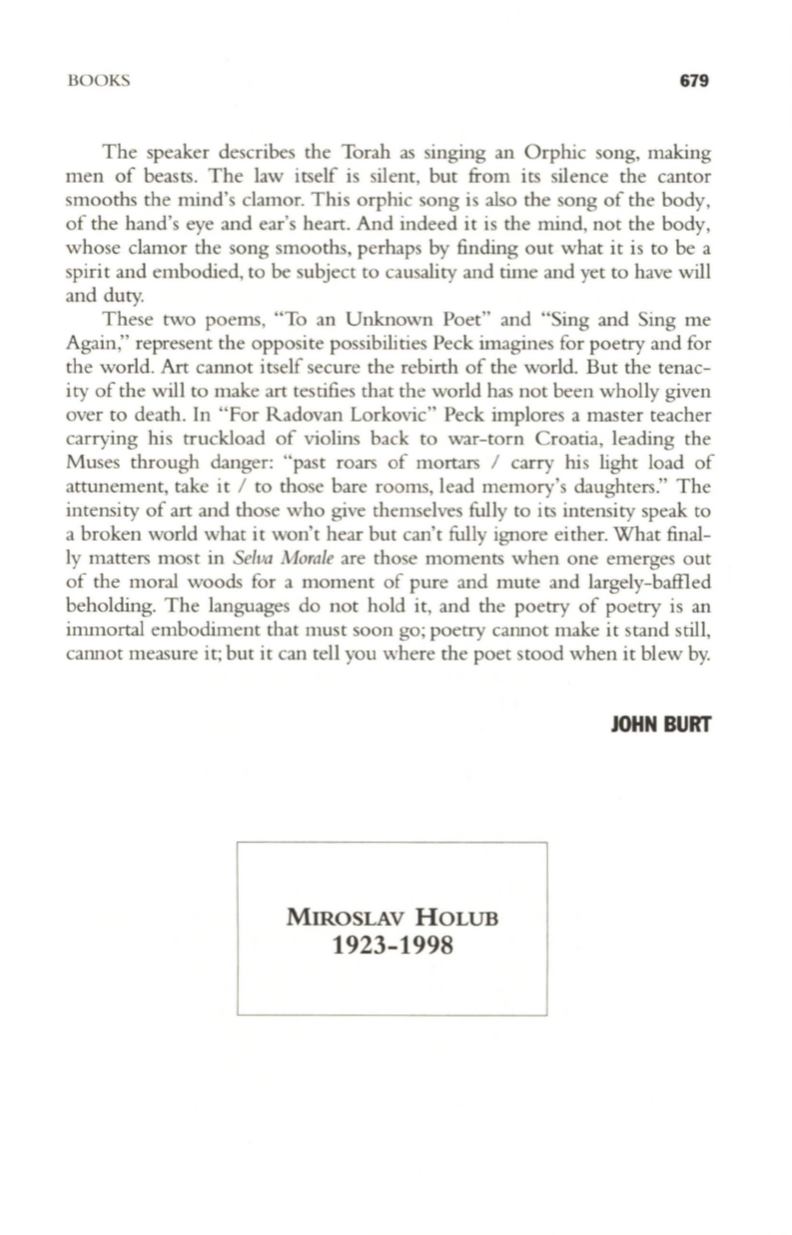
BOOKS
679
The speaker describes the Torah as singing an Orphic song, making
men of beasts. The law itself is silent, but from its silence the cantor
smooths the mind's clamor. This orphic song is also the song of the body,
of the hand's eye and ear's heart. And indeed it is the mind, not the body,
whose clamor the song smooths, perhaps by finding out what it is to be a
spirit and embodied, to be subject to causality and time and yet to have will
and duty.
These two poems, "To an Unknown Poet" and "Sing and Sing me
Again," represent the opposite possibilities Peck imagines for poetry and for
the world. Art cannot itself secure the rebirth of the world. But the tenac–
ity of the will to make art testifies that the world has not been wholly given
over to death. In "For Radovan Lorkovic" Peck implores a master teacher
carrying his truckload of violins back to war-torn Croatia, leading the
Muses through danger: "past roars of mortars / carry his light load of
attunement, take it / to those bare rooms, lead memory's daughters." The
intensity of
art
and those who give themselves fully to its intensity speak to
a broken world what it won't hear but can't fully ignore either. What final–
ly matters most in
Selva Morale
are those moments when one emerges out
of the moral woods for a moment of pure and mute and largely-baffled
beholding. The languages do not hold it, and the poetry of poetry is an
immortal embodiment that must soon go; poetry cannot make it stand still,
cannot measure it; but it can tell you where the poet stood when it blew by.
MIROSLAV HOLUB
1923-1998
JOHN BURT


